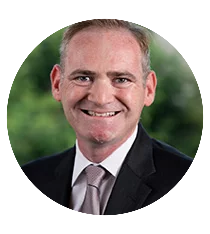14 considerations when mixing business and politics
All this month, we’ve been diving into the pros and cons of aligning your business with a political position. Now that we’ve looked at the topic from all angles, this week’s post looks at questions you can ask yourself before you decide to communicate your political positions with a wider audience. We also give some do’s and don’t for mixing business with politics.
Key questions to ask yourself before engaging your business politically
- Where are you in the power structure? Are you high up in the pecking order? You can likely speak more freely if you are higher up, but you have more to lose. Are you lower down? You might find it harder to speak freely, but you have less to lose.
- Do you possess emotional control? Politics can touch nerves and make otherwise reasonable people lose control of their emotions. Know yourself to guide yourself.
- Does the medium matter? Personal or digital? Sometimes, politics is something best discussed in person where misunderstandings can be more easily avoided and the bounds of congeniality are more apparent.
- Are you new in business or to your position, or not? The longer you’re in business, the more frank you can be about your political inclinations – it’s likely you’ve settled within a supportive business ecosystem. If you’re new to your business or position, however, you’re more vulnerable to being shunned by those who disagree with you.
- Does it matter who or what you support? There are degrees of extremity when it comes to political positions. Most people will openly support public education for children, whereas fewer people openly support LGBTQ rights.
- Is there a difference between Party Politics or politics? Supporting a Political Party can have you aligning yourself to a basket of different positions, some of which you may or may not agree with. It might be more congruent to support specific or aligned political positions instead of political parties.
- Does it depend on your customer’s views? You’ll be safer speaking if your customers, by and large, support the views you espouse.
- Does it depend on the product you sell? Some products easily lend themselves to aligned political positions whereas others have only tenuous relationships with broader policy. You might enjoy more congruency in your political positions and your brand if there is a natural link between them.
- Does it depend on how many customers you have? The more customers you have, the more likely it is that you’ll unknowingly offend some of them. On the other hand, if you have fewer customers, it’s likely you’ll know them better and will be able to better predict how they will react to your political leanings.
- Does it depend on how good your product is? The better your product, the more easily you can afford to align yourself with political positions – most people will continue to buy from you whether they agree with you or not.
- Does it depend on how weak your competition is? If your products are leaps and bounds better than your competition, the less likely it is that customers will switch.
- Does it depend on your customer’s demographics?
- Education. More educated people tend to be more progressive, less educated people tend to lean more conservative.
- Age. Younger people are more progressive, older people are more conservative.
- Gender. Women are more likely to be progressive while males are more likely to be conservative. With that said, there are many men and women that fit into every slice of the political spectrum.
- Socio-economic status. Those with high status tend to want things to remain the same, whereas those with less status want more change.
- Race and ethnicity. Minorities tend to be conservative (when it comes to religion or cultural issues) and more liberal on other issues like equality of opportunity.
- Regions. Rural regions tend to be more conservative while urbanites tend to be more progressive.
- Does it depend on whether your position is middle of the road or extreme? Middle of the road positions are easier to take whereas extreme positions can be risky.
- Does it depend if your position is against or with the tide? Adopting a popular position might show that you’re one of the crowd while adopting a less popular position may make you appear out of sync. Further complicating matters, it’s important to consider that the tide may someday turn.
NOTE: The best way to answer that nagging question about practice growth or marketing or patient volume in the back of your mind is to book a free 15-minute compatibility call. Get some options and go away with a clear idea of what’s possible.
Do’s and Don’ts of mixing business and politics
If you decide you don’t want to mix your business and politics, you can still speak out by:
- Using a pseudonym – so you can separate your views more effectively.
- Separating your properties (your social media, blog, websites). In this way, you can keep your politics on your personal properties without deliberately interfering with your business’s message. With that said, nothing on the internet is either completely private or separate from anything else. If you’re truly concerned about anonymity, using a pseudonym is relatively safer.
- Paying someone else to speak for you. This is how many corporations do it. They support lobbyists, professional associations, activist groups, political parties and politicians at arm’s length. Again, even the Koch Brothers couldn’t keep their channels of influence secret forever, despite making great efforts to do so. If someone really wants to know, they will find out.
If you decide you want to publicly align your business with politics, Forbes suggests you:
- Ask for permission.
- Know your facts (and admit when you don’t).
- Know your triggers and watch for them.
- Frame it as a learning opportunity.
- Don’t stand for disrespect.
- Know that your social media is public and permanent.
- Agree to disagree, if need be.
Our view on mixing business and politics
Here ends the objective part. Now we’ll tell you what we believe.
There is no doubt that when choosing whether to mix business and politics, there is an easy way and hard way. The easy way is to avoid politics. The harder way is to become engaged in the issues.
In most circumstances, the risks of speaking out politically outweigh the benefits. This is probably why we have a “don’t get too political” norm in our culture.
But, is political ignorance good for society?
We don’t believe so. We believe that not talking about politics is what gets us into undesirable, if not disastrous, political conditions. We believe we must be both politically aware and politically engaged, if we seek to improve our society.
Furthermore, we believe we can’t dissent in the digital space alone if we expect ourselves to be heard. We must get off our chairs, step out of our doors, and walk the streets if we are to rally the public support required to demand real change.
Today, people of all political stripes must ask themselves the question: Are we moving so far beyond right and left or conservative and progressive, that we’re venturing into territory that is abhorrent or dead wrong?
We ask the business owner: Is your profit and loss account more important than your humanity?
If you’re struggling with this, consider what you’ll do when the business problem you have chosen to tackle becomes irrelevant in the face of an oncoming political force?
What will you do when you become aware of an existential threat? Will you still remain silent? What’s your line?
We believe that if you’ve ever wondered what you would have done if you lived during the darkest times in human history… you needn’t. What you would have done is exactly what you are doing right now.
With that in mind, we’ll leave you to consider these ideas in the context of the unforgettable words of the philosopher and British statesman, Edmund Burke:
“The only thing necessary for the triumph of evil is for good men to do nothing.”
NOTE: The best way to answer that nagging question about practice growth or marketing or patient volume in the back of your mind is to book a free 15-minute compatibility call. Get some options and go away with a clear idea of what’s possible.
Psst….This is the fifth part of our 5-Part series on business and politics. Click on the links to read the related posts (released weekly):
- How does politics influence business?
- How can your company’s brand advertising impact politics?
- Why consider affiliating your business with political issues?
- The business pros and cons of speaking out politically
- 14 considerations when mixing business and politics
About the author

Rod Solar
Founder & Fractional CMO
Rod co-founded LiveseySolar and acts as a Fractional CMO for our customers. He’s on a mission to help transform the lives of 10,000 people through vision correction surgery by 2024. To achieve that, he inspires his customers to make confident decisions that will help 50,000 people take the first step towards vision correction.
Related Posts
Meet our Founders

Rod Solar
Founder & Scalable Business Advisor
Rod co-founded LiveseySolar and acts as a Fractional CMO and Scalable Business Advisor for our customers. He’s on a mission to help transform the lives of 10,000 people with vision correction surgery by 2024. To achieve that, he inspires his customers to make confident decisions that will help 50,000 people take the first step towards vision correction.
LiveseySolar completely transformed the way we were approaching this… We’ve gone from having just the dream of having a practice to having a practice up and running with people making inquiries and booking for procedures… It’s extremely pleasing. We feel lucky we connected with LiveseySolar.
— Dr Matthew Russell, MBChB, FRANZCO, specialist ophthalmic surgeon and founder of VSON and OKKO

Laura Livesey
Founder & CEO
Laura Livesey is the co-founder & CEO of LiveseySolar. She has developed powerful refractive surgery marketing systems that increase patient volumes and profits for doctors, clinics, and hospitals, since 1997.
Rod and Laura know as much about marketing surgery to patients as I know about performing it. They are an expert in the field of laser eye surgery marketing. They know this industry inside out. I believe that they could help many companies in a variety of areas including marketing materials, sales training and marketing support for doctors.
— Prof. Dan Reinstein, MD MA FRSC DABO, founder of the London Vision Clinic, UK











